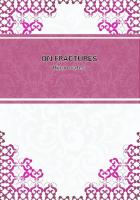ERNEST.May I ask,Gilbert,to whom you allude?
GILBERT.Oh!to all our second-rate LITTERATEURS.We are overrun by a set of people who,when poet or painter passes away,arrive at the house along with the undertaker,and forget that their one duty is to behave as mutes.But we won't talk about them.They are the mere body-snatchers of literature.The dust is given to one,and the ashes to another,and the soul is out of their reach.And now,let me play Chopin to you,or Dvorek?Shall I play you a fantasy by Dvorek?He writes passionate,curiously-coloured things.
ERNEST.No;I don't want music just at present.It is far too indefinite.Besides,I took the Baroness Bernstein down to dinner last night,and,though absolutely charming in every other respect,she insisted on discussing music as if it were actually written in the German language.Now,whatever music sounds like I am glad to say that it does not sound in the smallest degree like German.
There are forms of patriotism that are really quite degrading.No;Gilbert,don't play any more.Turn round and talk to me.Talk to me till the white-horned day comes into the room.There is something in your voice that is wonderful.
GILBERT (rising from the piano).I am not in a mood for talking to-night.I really am not.How horrid of you to smile!Where are the cigarettes?Thanks.How exquisite these single daffodils are!
They seem to be made of amber and cool ivory.They are like Greek things of the best period.What was the story in the confessions of the remorseful Academician that made you laugh?Tell it to me.
After playing Chopin,I feel as if I had been weeping over sins that I had never committed,and mourning over tragedies that were not my own.Music always seems to me to produce that effect.It creates for one a past of which one has been ignorant,and fills one with a sense of sorrows that have been hidden from one's tears.
I can fancy a man who had led a perfectly commonplace life,hearing by chance some curious piece of music,and suddenly discovering that his soul,without his being conscious of it,had passed through terrible experiences,and known fearful joys,or wild romantic loves,or great renunciations.And so tell me this story,Ernest.I want to be amused.
ERNEST.Oh!I don't know that it is of any importance.But Ithought it a really admirable illustration of the true value of ordinary art-criticism.It seems that a lady once gravely asked the remorseful Academician,as you call him,if his celebrated picture of 'A Spring-Day at Whiteley's,'or,'Waiting for the Last Omnibus,'or some subject of that kind,was all painted by hand?
GILBERT.And was it?
ERNEST.You are quite incorrigible.But,seriously speaking,what is the use of art-criticism?Why cannot the artist be left alone,to create a new world if he wishes it,or,if not,to shadow forth the world which we already know,and of which,I fancy,we would each one of us be wearied if Art,with her fine spirit of choice and delicate instinct of selection,did not,as it were,purify it for us,and give to it a momentary perfection.It seems to me that the imagination spreads,or should spread,a solitude around it,and works best in silence and in isolation.Why should the artist be troubled by the shrill clamour of criticism?Why should those who cannot create take upon themselves to estimate the value of creative work?What can they know about it?If a man's work is easy to understand,an explanation is unnecessary.
GILBERT.And if his work is incomprehensible,an explanation is wicked.
ERNEST.I did not say that.
GILBERT.Ah!but you should have.Nowadays,we have so few mysteries left to us that we cannot afford to part with one of them.The members of the Browning Society,like the theologians of the Broad Church Party,or the authors of Mr.Walter Scott's Great Writers Series,seem to me to spend their time in trying to explain their divinity away.Where one had hoped that Browning was a mystic they have sought to show that he was simply inarticulate.













